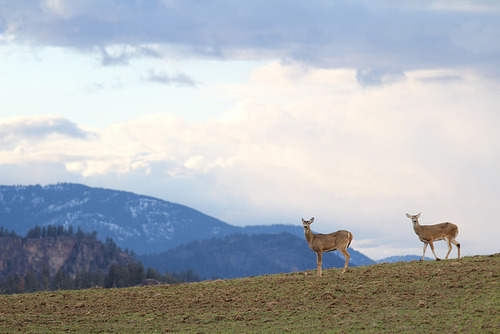
Washington’s astounding beauty is a part of your daily life, but a picturesque future for the outdoors hangs in the balance in Congress.
Our nation’s best tool to protect national and local parks, wildlife refuges, and working forests and range lands is set to sunset – or expire – in 2015 unless Congress renews it.
We cannot let this program fade away. Many communities still lack access to close-to-home outdoor recreation, changing climate threatens access to national parks and the preservation of treasured landscapes, and working lands risk being lost to incompatible development; LWCF funds are needed across the nation to fulfill local priorities.
The diverse benefits of this program are apparent right here in our home state from future and past projects like these recently funded efforts:
-
The Yakima River Canyon will be protected for outdoor recreation and conserve essential water resources farmers and families rely on with these essential grant dollars.
-
Hikers on the Pacific Crest Trail are able to get in touch with some of the nation’s most scenic, untouched landscapes on the west coast because of LWCF funds.
-
Thousands of kids will be able to learn to swim and play with their peers at a newly renovated pool in Chehalis that was recently awarded an LWCF grant.
Land and water conservation has strong bipartisan support with funds being used to improve access for recreationists, and support rural economies across the country.
Senators Patty Murray and Maria Cantwell together are fighting for Washington’s outdoors and have co-sponsored a bill to reauthorize and fully fund the Land and Water Conservation Fund.
The Land and Water Conservation Fund (LWCF) was originally created in 1965 and intended to invest $900 million per year in projects across all 50 states focusing on everything from protecting rivers, streams and wildlife habitat to building neighborhood ballfields. The grant program is funded with a small portion of federal revenues from offshore oil and gas leases, not tax dollars.
If passed by Congress, the bill would ensure full funding of $900 million per year for the LWCF.
“In Washington state, we know better than most that it’s absolutely critical to protect our natural resources, not only for the environment, but also for our economy,” said Patty Murray in a press release.
Protecting our national lands is a key part of our history and will be essential for our future, whether that is preserving coast lines to prepare for sea level rise or ensuring high-quality recreation access across the nation.
President Theodore Roosevelt summed up the need to protect the outdoors by saying, “The conservation of natural resources is the fundamental problem. Unless we solve that problem it will avail us little to solve all others.”
America’s public lands are the great equalizer, allowing everyone to get outdoors regardless of class or creed.
We will be working hard to urge our leaders to preserve this essential facet of our American life.
Photo by Alexandra M.
